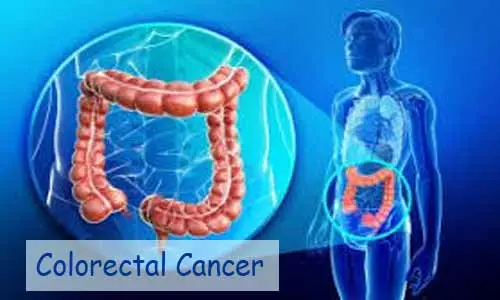- Home
- Medical news & Guidelines
- Anesthesiology
- Cardiology and CTVS
- Critical Care
- Dentistry
- Dermatology
- Diabetes and Endocrinology
- ENT
- Gastroenterology
- Medicine
- Nephrology
- Neurology
- Obstretics-Gynaecology
- Oncology
- Ophthalmology
- Orthopaedics
- Pediatrics-Neonatology
- Psychiatry
- Pulmonology
- Radiology
- Surgery
- Urology
- Laboratory Medicine
- Diet
- Nursing
- Paramedical
- Physiotherapy
- Health news
- Fact Check
- Bone Health Fact Check
- Brain Health Fact Check
- Cancer Related Fact Check
- Child Care Fact Check
- Dental and oral health fact check
- Diabetes and metabolic health fact check
- Diet and Nutrition Fact Check
- Eye and ENT Care Fact Check
- Fitness fact check
- Gut health fact check
- Heart health fact check
- Kidney health fact check
- Medical education fact check
- Men's health fact check
- Respiratory fact check
- Skin and hair care fact check
- Vaccine and Immunization fact check
- Women's health fact check
- AYUSH
- State News
- Andaman and Nicobar Islands
- Andhra Pradesh
- Arunachal Pradesh
- Assam
- Bihar
- Chandigarh
- Chattisgarh
- Dadra and Nagar Haveli
- Daman and Diu
- Delhi
- Goa
- Gujarat
- Haryana
- Himachal Pradesh
- Jammu & Kashmir
- Jharkhand
- Karnataka
- Kerala
- Ladakh
- Lakshadweep
- Madhya Pradesh
- Maharashtra
- Manipur
- Meghalaya
- Mizoram
- Nagaland
- Odisha
- Puducherry
- Punjab
- Rajasthan
- Sikkim
- Tamil Nadu
- Telangana
- Tripura
- Uttar Pradesh
- Uttrakhand
- West Bengal
- Medical Education
- Industry
Colon cancer risk extends to second- and third-degree relatives, finds study

Having second- or third-degree relatives with colorectal cancer increases a person's risk of developing the disease, according to the findings of a study led by researchers from the University at Buffalo and the University of Utah.
Early colonoscopy screening is often recommended for first-degree relatives of someone diagnosed with early-onset -- meaning before age 50 -- colorectal cancer, cases of which have been increasing significantly over the past few decades. But the study suggests that early screening may be beneficial for second- and third-degree relatives as well.
The study found that first-degree relatives of someone diagnosed with early-onset colorectal cancer are 6 times more likely to be diagnosed with colorectal cancer before age 50, while second-degree relatives are 3 times likelier and third-degree relatives 1.56 times likelier.
First-degree relatives include parents, children and siblings. Second-degree relatives include aunts, uncles, grandparents, grandchildren, nieces and nephews. First cousins, great-grandparents and great-grandchildren are examples of third-degree relatives.
The findings were published last month in the journal Cancer Epidemiology. Researchers from the University at Buffalo and University of Utah led the study, which reviewed more than 1,500 early-onset colon cancer cases in the Utah Cancer Registry, part of the Utah Population Data Base.
"Unique Utah resources, including a decades old National Cancer Institute statewide cancer registry and computerized genealogy data for the majority of the population, made this important collaboration possible," says Lisa Cannon-Albright, PhD, professor and leader of the genetic epidemiology program in the Department of Internal Medicine at the University of Utah School of Medicine. She is also a Huntsman Cancer Institute investigator.
"Our study provides new insight into the magnitude of risk for more distant relatives of colorectal cancer cases, and in particular, for relatives of cases who were diagnosed before age 50," says first author Heather Ochs-Balcom, PhD, associate professor of epidemiology and environmental health in UB's School of Public Health and Health Professions. "This work is important given the rising rates of early-onset colorectal cancer."
The study also found that individuals are at a 2.6-fold higher risk of colorectal cancer at any age if they have a first-degree relative with early-onset colon cancer. The risk is 1.96 and 1.3 times greater for second- and third-degree relatives, respectively. In addition, the risk for all degrees of relatives for early-onset colon cancer is higher than the risk for colon cancer at any age.
The findings suggest that early colonoscopy screening may be beneficial for second-degree relatives and possibly third-degree relatives, in addition to first-degree relatives of individuals diagnosed with colorectal cancer before age 50.
The researchers also point out that relatives may benefit from being more aware of their extended family history and sharing this information with their physician when making cancer screening decisions.
https://www.sciencedirect.com/science/article/abs/pii/S1877782121000904?via=ihub
Hina Zahid Joined Medical Dialogue in 2017 with a passion to work as a Reporter. She coordinates with various national and international journals and association and covers all the stories related to Medical guidelines, Medical Journals, rare medical surgeries as well as all the updates in the medical field. Email: editorial@medicaldialogues.in. Contact no. 011-43720751
Dr Kamal Kant Kohli-MBBS, DTCD- a chest specialist with more than 30 years of practice and a flair for writing clinical articles, Dr Kamal Kant Kohli joined Medical Dialogues as a Chief Editor of Medical News. Besides writing articles, as an editor, he proofreads and verifies all the medical content published on Medical Dialogues including those coming from journals, studies,medical conferences,guidelines etc. Email: drkohli@medicaldialogues.in. Contact no. 011-43720751


